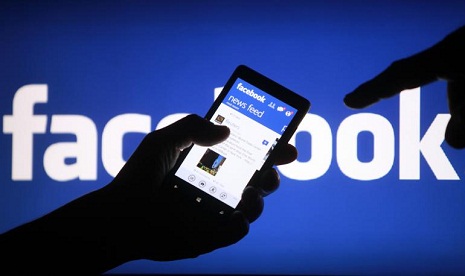In its earnings report for the second quarter of 2018, Facebook just missed Wall Street’s estimates on revenues and user growth, though it still made $13.2bn – a 42% year-on-year increase.
Monthly active users were still up by 11% year over year to 2.23 billion, as were daily active users, at 1.47 billion. However, growth was flat in the US and Europe, the company’s largest advertising markets.
As Wall Street analysts were expecting stronger user growth to 1.49 billion and revenues of $13.3bn, the company’s stock price fell precipitously during an earnings call.
“We are investing so much in security that it will have a significant impact on our profitability,” said the CEO, Mark Zuckerberg, during the call, referencing a commitment he first announced in November 2017 in an effort to clamp down on foreign election interference, misinformation and hate speech. “We are starting to see that this quarter.”
The chief financial officer, David Wehner, said: “Our total revenue growth rates will continue to decelerate in the second half of 2018, and we expect our revenue growth rates to decline by high single-digit percentages from prior quarters sequentially in both Q3 and Q4.”
Daily and monthly active users in Europe fell for the first time, to 279 million from 282 million and to 376 million from 377 million, respectively. In the US, the daily and monthly users remained flat at 185 million and 241 million, respectively. Even so, the company managed to squeeze slightly more money out of every user in these markets compared with the previous quarter.
Zuckerberg also revealed a new metric: 2.5 billion people use at least one of Facebook’s apps – Facebook, Instagram, WhatsApp or Messenger – each month.
Throughout the earnings call, efforts were made to highlight the fact that the company’s future growth would not come from the core Facebook platform but from its other properties, including its messaging apps and Instagram.
Zuckerberg described Instagram in particular as an “amazing success” and noted the money-making potential of Instagram TV, a longform video format, which launched at the end of June.
The chief operating officer, Sheryl Sandberg, said there were opportunities to monetise the interactions between businesses and customers on both Facebook Messenger and WhatsApp but that it was “very early days”.
The second quarter of the year was the first full quarter after the Observer reported in mid-March that millions of Facebook users’ profiles had been harvested by a researcher and inappropriately passed on to political consultancy Cambridge Analytica, which wanted the data to try to influence voters.
In early April, Facebook revealed in a blogpost that Cambridge Analytica may have gained 37m more users’ data than originally reported, bringing the total number of people who may have been affected to 87 million.
“We didn’t take a broad enough view on what our responsibility was and that was a huge mistake. That was my mistake,” said Mark Zuckerberg during a conference call shortly after the post was published.
The same quarter saw the company suspend hundreds of apps as part of an investigation prompted by the Cambridge Analytica scandal and Zuckerberg’s appearances before Congress and European parliament.
In late May, the General Data Protection Regulation came into effect in Europe, restricting the way advertising companies collect data from individuals.
Facebook also made changes to improve transparency about advertising, including tightening the rules around political advertising and launching databases showing what ads pages have run.
The company also invested resources into election integrity in Mexico, identifying and removing fake accounts, pages and groups ahead of the 1 July presidential election.
“Over the next 18 months there are important elections beyond the US and these will all be real tests for Facebook,” said Zuckerberg during the earnings call.
More about: #Facebook
















































